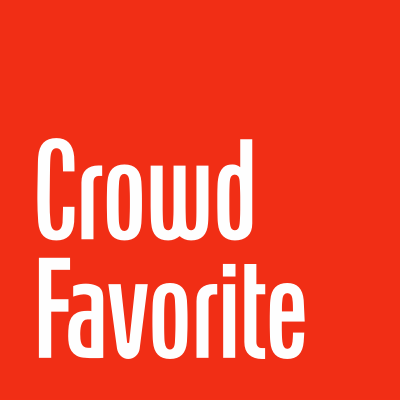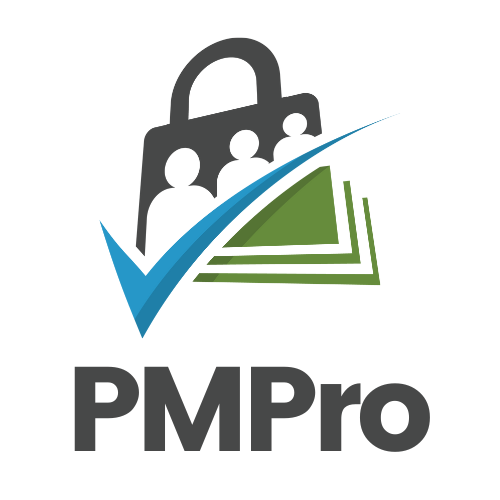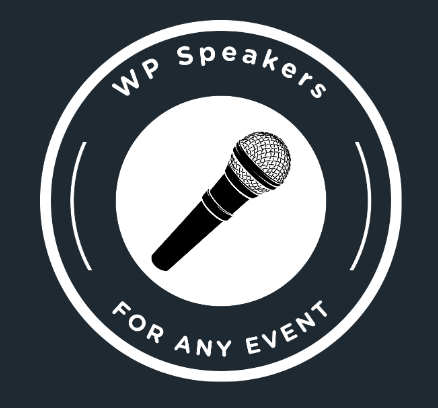Being 25 and Under in Tech
Episode 6: What is it like being 25 and under in tech?
The next generation of people working in tech holds the future of the industry in their hands, yet those people often struggle to be heard. In this episode Allie Nimmons talks to Allison Dye, Sophia DeRosia, and Tycho de Valk about the stigmas as well as the benefits that come with being younger, the differences in how young people look at tech, and more.
Our Panelists
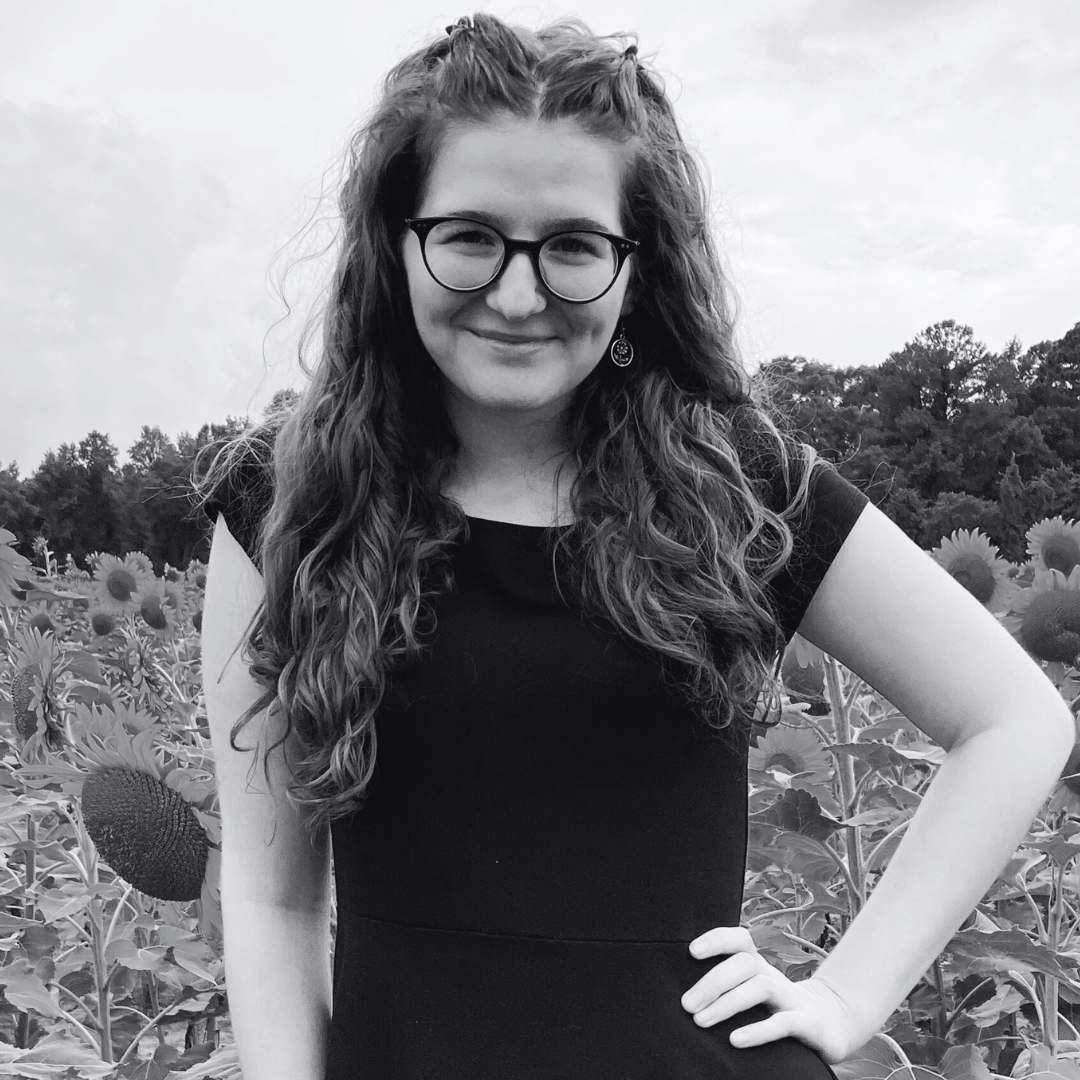
Allison Dye
I’m Italian-American and currently live in the US where I’m working as a self-employed freelancer, supporting organisations with their online presence and communication through their websites and social media. I am passionate about disability advocacy, creating art, and making real-world impact through digital communication. allisondye.com

Sophia DeRosia
Sophia DeRosia is an aspiring marketing, with around 10 years of experience in the WordPress community. eringoblog.org
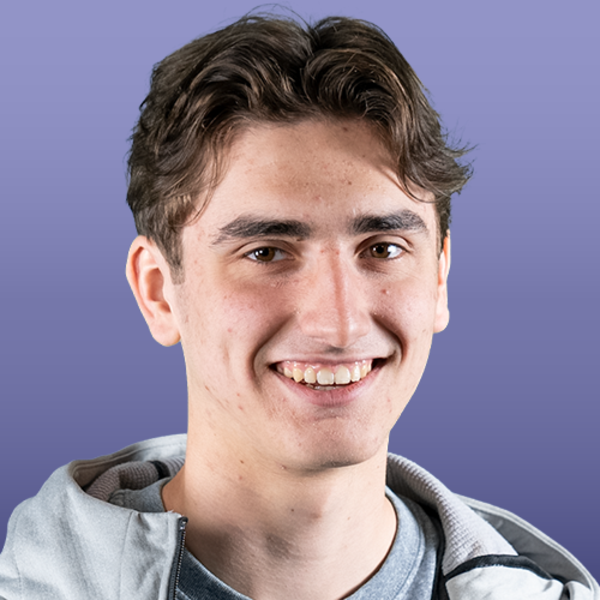
Tycho de Valk
My name is Tycho de Valk, I’ve been working with WordPress for 3+ years and earlier this year I started my own web development agency.
Episode Transcript
What is it like being 25 and under in tech?
Allie Nimmons:
Hello and welcome everyone to this episode of the Inclusive Webinar Series hosted by Underrepresented in Tech. Before we get started, we do have to take a moment and thank our sponsors, who without whom none of these webinars would be possible. So I want to send a quick shout out to Crowd Favorite, GoDaddy Pro, Howard Development & Consulting, Paid Memberships Pro, WP Speakers and Yoast SEO. It was very important to us here at Underrepresented in Tech for us to be able to compensate the people who are working on this webinar as well as our panelists. So our sponsors allow us to make that happen. This episode of the webinar is focusing on people who are younger than the average person that you might see working in tech. So everyone here aside for myself is aged 25 or younger, I won’t ask everyone to share exactly what their age is unless you would like to. But typically, the average age of the person that we tend to see in technology is usually around 30s, mid-30s, early 40s.
So the fact that there are tons of younger people working in tech right now and representing this next generation of thought and talent and skill is extremely important. And so we wanted to talk to these folks and learn more about them and their experiences.
So with us today, we have Allison Dye. Allison is a self-employed freelancer supporting organizations with their online presence and communication through their websites and social media. And she’s passionate about disability advocacy, creating art, and making real world impact through digital communication. We also have Sophia DeRosia, who is an aspiring marketer with around 10 years of experience in the WordPress Community. And Tycho de Valk, who has been working with WordPress for three plus years. And earlier this year they started their very own web development agency, which is called Filius Web Solutions. So thank you so much to all three of you for taking time out of your day today and being here with us.
Cool, so we’ll go ahead and dive into the very first question. What do you wish that people knew or understood better about [inaudible 00:02:29] like to be younger working in tech right now?
Sophia DeRosia:
I think it would be incredibly helpful for employers or people who are looking for a particular skillset to understand that that skillset can be taught. And that especially, now that people our age are understanding that college isn’t necessarily the way to go. And that things like internships or I almost feel like a lot of say online stuff, marketing, development, whatever, is almost more like a trade than it is say a typical career path that you would go to college for. And I wish that more employers would prioritize, not skillset, I can’t think of the word, but say personality or the communication skills, things that people can be really, really good at that are a lot harder to teach. And be more willing to train somebody up, because if you go to any… If you go and work at Target, they teach you how to do all of the things that you need to know and they don’t expect you to know anything.
And a lot of people work really, really well in that environment simply because they’re taught expectations upfront and they say, “This is your goal, go and do it.” And I wish more people would do that.
Allie Nimmons:
That makes a lot of sense. So what I heard at the beginning of that too was prioritizing softer skills, the things that you kind of as a person are naturally good at, right? And then maybe training up the hard skills and so on.
Sophia DeRosia:
Yes, exactly.
Allie Nimmons:
Yeah, that makes total sense.
Allison Dye:
Absolutely, I would also agree with that. That’s kind of something that came to mind when you asked the question, was that I feel like oftentimes because the WordPress Community, the average age is older than their 20s, they’re expecting to see a large amount of experience. And this is speaking just generally, it wasn’t my experience, but I know that it happens to a lot of young people. Where they need 10 years of experience and it’s like, “Well, I’ve barely been out of school that long.” So I think just a greater understanding that we’re not babies anymore, it sounds silly to say, but it’s true. Often we’re still looked at as children, but we’re here ready to work and learn and have a job that we do well. And if we’re seeking the opportunity, I feel like they could trust that we’re ready to learn whatever we need to to do our job well.
Allie Nimmons:
Yeah, absolutely. Tycho, what do you think?
Tycho de Valk:
Yeah, I would agree with that as well. I feel like sometimes you’re being underestimated a bit just because they see your age and they’re like, “Nah, there’s no way.” But as you guys said, that’s not always the case.
Allie Nimmons:
I feel as though in a lot of ways, yeah, looking at a resume and seeing an age, sometimes that’s a value add, right? Of this person is a fresh set of eyes, they’ve not been maybe in this field or in this industry as long. So they look at things a different way or they interact with the world a different way. And as people working to build things that others use, right? Websites, applications, whatever that case may be, a lot of people who use these things are younger. So you’d want someone building that thing to have that unique perspective as well. Yeah, I love all of that. So for you personally, and we can speak about this generally as well, what do you think is the biggest challenge facing you as a younger person working in tech at the moment?
Tycho de Valk:
So I think for me the hardest challenge was probably when I started working at Yoast, which was when I just turned 14. And to be fair, nobody thought that… I don’t think everyone thought that I could do the job that I was going to do. Some people did, but most… I was in a team of I think 20 plus people in their support team, I don’t think most people thought that I could do that. So I felt like I had to prove myself a bit more, which also makes sense because well, there are not many 14 year olds on that team. But even after that I feel like people would still not always take you seriously.
Allie Nimmons:
What I’m hearing is just being taken seriously in whatever it is that you’re trying to do. If you’re on a team of people who are older than you, living up to that assumption or removing that assumption.
Tycho de Valk:
Yeah. And it usually isn’t the people that I work closely with, but more the people that I don’t work that closely with, but they know what I do and that’s it.
Allie Nimmons:
Right. So they don’t work closely enough with you to see that you know what you’re doing.
Tycho de Valk:
No. Exactly, yeah.
Allie Nimmons:
Right, yeah. Yeah, that’s tough. That’s tough.
Sophia DeRosia:
For me, it was finding those opportunities to be engaged as a person who isn’t proficient, is that the word that I want? Proficient in, say, development or a very clear, easy, this is how you get involved. If you go to say a kids camp, it’s always, “This is how you make a website, and this is how you code something.” And those are not the skills that I am particularly good at, really at all. And so trying to get involved and find opportunities other than tech support or junior dev somewhere was always really hard. And I had to work very hard to gain connections and really dig in and just hope I was lucky enough to find something. And that was a really bad strategy.
Allie Nimmons:
Yeah, I can understand that. Allison, what do you think?
Allison Dye:
I think that the biggest challenge for young… I can’t speak for all young people, but for a lot of young people is that we prioritize different things in a workplace. When you compare that to other generations that we’re [inaudible 00:08:44] with, just working a lot of hours a week and getting their paycheck. I feel like the younger generation were like, “We need parental leave, we need fair wages. We’re not going to be paid entry level wages, because then we’re not going to be able to pay our bills.” I feel like we are more empowered even by our parents or previous generations who are saying, “You can ask for better.” And so I think that’s a challenge that just most generally is not just in tech, but maybe especially in tech, is something that we’re facing just because we are taking care of ourselves, we’re standing up for ourselves. And we are demanding better workplaces, better paid time off. And it’s not easy because the way the system is designed, it is very much an old system, and people were pretty content with the way that things were.
I think we’ve made a lot of progress just in the fact that so many women are now in tech as well, that’s huge progress. But I think that as a young generation, we still see a lot of work ahead of us. So I think that’s a challenge sometimes to think of all the things we kind of have to dismantle or kind of change in the tech world.
Allie Nimmons:
Yeah, absolutely. And I remember even just seven years ago or so when I started working in tech, having more of a sense of work-life balance of, “Yeah, I’m not going to work 50 hours a week, thank you so much. I’m going to take care of myself and I’ll see you tomorrow at 9:00 AM or whatever.” And having older coworkers who are like, “Well, I am going to work all of those extra, extra hours.” And how that made me then look lazy or like I didn’t want it as much, because I, like you said, prioritize different things differently. I can definitely identify with that.
I want to go back to something that Sophie said as well, you mentioned kids camps.
Sophia DeRosia:
Yeah.
Allie Nimmons:
Which if you’re listening and you don’t know, the WordPress Community has a series of events called WordCamps. And some of those WordCamps have particular programming aimed toward, I would say usually elementary, maybe middle school aged kids, right?
Sophia DeRosia:
Yeah. Honestly, I would guess it’s more so between 7 and 12 is the-
Allie Nimmons:
Younger. Yeah.
Sophia DeRosia:
It very much depends on the community around, but I feel like it’s far more geared towards say, iPad kid generation.
Allie Nimmons:
Yeah. Younger, much younger than us, right? And you’re right, a lot of that content is, how to build your first blog, which is fantastic. That’s not something you’re going to put on a resume to say, “I know how to build a blog.” Right? You want to have a higher level of skills than that. I wonder from the three of you, if you could design something, if you could design a part of a WordCamp that is more structured toward the issues that you’re facing, the issues that we’re talking about right now. Even maybe not as a WordCamp, but some kind of event, some kind of structure that basically provides what kid camps provide to kids, but providing what you all need to you, what would that look like? I love the thinking faces.
Sophia DeRosia:
I feel like it would be very much so almost just discussion based. It would be kind of I guess a round table, a lot of just banding together and saying, “These are the things that we want. How can we achieve them?” And just, I don’t know, I feel like conversationally and community focused would really be the best way to go about it for our generation.
Allie Nimmons:
So kind of a community summit, but focused on that sort of an issue.
Sophia DeRosia:
Yeah. Mm-hmm.
Allie Nimmons:
Yeah.
Allison Dye:
I feel like a greater focus on just even digital communication because even though everyone can digitally communicate, it doesn’t mean that they do it well. And so I think something to help everyone kind of navigate any biases we might have or make sure that we’re communicating clearly and in a friendly way. And I feel like that’s huge because it can be hard to communicate intergenerationally through tech with each other, and in the workplace. There’s so many levels of communication and so many layers of it. I feel like that could be huge because it is a lot to navigate.
Tycho de Valk:
I think I would just like to see more people attend the general… more people our age attend the general WordCamps. I think that would change the conferences as well, maybe help in organizing them. I’m not sure what I’d like to change about the whole structure of those things, but just more people attending would be great.
Allie Nimmons:
That is excellent, sometimes the simplest kind of solution is best, right? I think that makes a lot of sense. And I’ve spent some time co-organizing the BlackPress Group, and that is something that we talk about a lot is how do we reach out to college age kids, college age people, I should say. And create that pipeline from high school, from higher education into a community like WordPress, where there’s opportunities for mentorship and learning new things and so on. And I completely agree with you where for so many people, particularly in WordPress, the events are kind of the on-ramp into the rest of the community and to job opportunities and so on. And yeah, we don’t really make a huge effort to bring younger folks into that fold. It’s sort of just open call, anyone who wants to show up can show up. I bet there are ways that we could make it a more welcoming environment to people within this age group. That’s a really great idea.
I do also have another extra question, particularly… Sorry, Allison, particularly for Sophia and Tycho. You both have, I’ll say family already active and working in the WordPress Community, who are people that people probably know. Has that been a benefit? Has that been a hindrance? Has it been a little bit of both? What is that like to kind of have people look at you as, “Oh, you’re so-and-so’s son, so-and-so’s daughter.” Does that feed into that, “Well, I’m now being seen as a younger version of, and so not being taken seriously.”? Or do you find that that’s been helpful for you?
Sophia DeRosia:
Something that my family has always worked towards is not having it be a hindrance. For a long time, my mom was known as Topher’s wife, and that was just demolished as soon as possible. And my mom actually thought about not referring to us as her children at WordCamp so that we didn’t have that barrier. But for me at least, a lot of people, I guess, and it might just be largely how my family works, we were never coddled. There was never a point where I thought I would get a job simply for being who I was or being liked necessarily. And I feel like the kinds of friends that my parents had also sought that. There was never a time where I felt like I was getting a job simply because of who I was or the background that I had.
It helped for sure, and it helped me build a lot of connections, but more so I think it gave the people around me and the community that I’m in a view into really the type of personality that I have and the skillsets that I have. And it gave me the opportunity to kind of grow into the space and not necessarily, I guess take advantage of it.
Tycho de Valk:
I think for me, the first job that I got was definitely because my parents owned Yoast.
Allie Nimmons:
That’ll help. That’ll do it. That’ll help
Tycho de Valk:
But we did agree that if I wasn’t good enough then I was out, so I feel like I did deserve it in the end. Even though another 14-year-old would never have gotten that opportunity to be fair, so that was definitely a benefit. And it still is, I think at WordCamps maybe a benefit when people are like, “Oh, you’re Joost and Marieke’s son.” I don’t really like it being referred as their product, but-
Allie Nimmons:
I learned about you through your mom. Somebody mentioned that you had spoken at a WordCamp and that you were Marieke’s son, and I’d met Marieke before. So I can definitely understand that concept for both of you of kind of having your parents be a bit of an on-ramp. But once you’re there, you’re there and it’s about you and what you’re doing and what you’re working on and your skills. Yeah, that seems like a good balance to me.
Tycho de Valk:
Yeah, I think so. I will now never accept a job again from my parents, that’s what I told them, so…
Allison Dye:
Well, my dad isn’t as well known as Topher and Joost. He’s the reason I’m in WordPress, he now works at Automattic.
Allie Nimmons:
Oh, awesome, I didn’t know that.
Allison Dye:
Yeah, so he started in WordPress in the very beginning, and when I was 13, he kind of gave me my own website to kind of play with, so that’s kind of how I got my start in WordPress. And my first official job in WordPress was thanks to knowing him [inaudible 00:18:38], but he was very much like, “It’s all you now kid. I maybe got the connection, but you have to do the work.” And it was something that I carried with me every day like, “I want to work for this, I don’t want to have it just because I’m Eric Dye’s daughter.” Because we were even in the same workplace, and he made it very clear to silo himself. And so he would never call me his daughter at work, I was Allison and I would call him Eric. And it helped me to have that kind of support where he was like, “I understand why this could be difficult for you.” Because for him saying I was his daughter did nothing, but he did understand the implications that could have for me being seen as really young or inexperienced.
And I’m very grateful for getting my start thanks to him, but even my bosses or supervisors have reminded me over and over again like, “Yeah, he might’ve helped you get in, but every other chance you’ve been given, you’ve taken it and you’ve worked for it yourself.” I do wish more kids had that opportunity because I feel super lucky to have had that, it’s a huge chance.
Allie Nimmons:
Cool. See, I did not know that about you and I didn’t realize we had three WordPress nepo babies on the panel today. What were you going to say, Sophie?
Sophia DeRosia:
I do feel like there is a certain level of guilt in having that privilege. And especially, being as young as we are, I don’t know how old you both are, but for me at least being the age that I am and still having a lot of friends who still work at Starbucks and still work at Target, and I just got my first full-time salary job [inaudible 00:20:22] insurance. And I’m incredibly thankful for it, and it’s an asset I want to use to be able to help my community and help my friends, but it’s definitely not… It’s something that I’ve, not exactly even felt guilty, but understood that weight and that gift and that a lot of people around me don’t have that.
Allie Nimmons:
Yeah. Man, I saw that nod from the two of the other of you when she said, guilty. That really seemed to resonate with both of you.
Tycho de Valk:
Yeah.
Allie Nimmons:
Yeah. And that’s so fascinating and interesting to me of having this double-edged sword of being brought into this world. But it’s so awesome to hear that all three of you have been passionate about proving yourselves outside of that while being grateful of what you’ve been given, that’s really fantastic. Do we want to share how old we are? Just to kind of maybe destigmatize that a little bit? There’s this whole thought process of you’re not supposed to ask people how old they are, but that’s kind of what this is all about, right?
Sophia DeRosia:
That’s dumb. I was never raised in that culture of, “Oh, you’re so old, that’s such a bad thing.” I would love to be 45 and comfortable and have a house, that sounds lovely.
Allie Nimmons:
Well, I’ll start, I’m 30. How old are the rest of us?
Tycho de Valk:
I’m 17.
Allison Dye:
25.
Allie Nimmons:
25, you said, Allison? And Sophia?
Sophia DeRosia:
I am 21, and I will be 22 at the end of the month.
Allie Nimmons:
17, 21, 25 and 30. So we cover that whole gap right there, don’t we? Yeah, that’s fantastic. And when I started in WordPress, there was one other person that I encountered who was a year younger than me. And I didn’t know anyone else in their 20s really working in WordPress at the time, so I’m glad all of you are here. Let’s move on to the next question, and I wonder if this applies to you all. What are some communities or organizations or groups or companies or anything like that in tech right now that you feel like of all the stuff that we’ve talked about and all of the challenges that you’ve faced within your age group, what are some groups that you see that are doing things right, that are helping you, that have the kind of mindset that you would like to see for the challenges that you’re going through?
Allison Dye:
Underrepresented in Tech, I love everything that you guys are doing, I think it’s really important. I also think of, Big Orange Heart comes to mind. I feel like they are a constant reminder, mental health is so important. And for someone who has a dynamic disability like me and mental illness, it’s so important to get those reminders, and that is such an important part of the community as well. Big Orange Heart is a valued part of the community and I think that their work is very unique and important. And another place that comes to mind is HeroPress by Topher. I just feel like those stories are the reminder of why we’re here, how we’re here, what we’re doing. I think they’re a reminder of the soul of what WordPress is and should be.
Allie Nimmons:
I’ll make sure that Michelle knows that you said all of that because she is behind two of the three things you just mentioned.
Sophia DeRosia:
So I actually just got hired by Paid Memberships Pro, and the attitude that they have had towards hiring somebody my age is… I got hired on to be on the marketing team. The current marketing manager was also hired on very, very young, and they helped her grow into having this career. And I appreciate the value that they have in understanding the difference between the hard and the soft skills. And really just prioritizing that and that that… Sorry, I cannot compile thoughts at the moment. It’s prioritizing that human aspect, and that we are just people who just want to pay our bills. And we want to live our lives and that we need a career and we want a career, but what comes first is paying the bills. It’s just tricky to find something that prioritizes that humanity.
Tycho de Valk:
I think for me it might be a bit different than for you guys, I’m still living at home, still attending high school. So I’m not working full time, I don’t really have to worry about paying the bills. So I think for me it was Yoast who gave me the chance to work there and the people that gave me the chance to work there. And lately, I think just the organization of WordCamps where they let me speak at WordCamp Europe, which was great. Which I didn’t expect, but that really helped, that was really cool.
Allie Nimmons:
Yeah, absolutely. But I love that for you because you have time to, once you’re done with high school and you are then working full time, these places exist for you to come find. And I’m sure more places will crop up for you to be able to find as well, and we’ll all be here waiting for you to make sure that you succeed. And speaking of such, I know that as I started working my way up through WordPress, I was lucky enough to find a lot of mentors, older people who have been doing this longer than me. Who were already at where I wanted to be, who have been able to open doors for me or give me advice or call me out when I was not thinking of something the right way, or be there for me to talk through things with. Have you all found those people in tech? How have you found them? Where have you found them?
Allison Dye:
Yeah, I think there’s been lots of people even along the way, even if they weren’t continuously mentoring me, just people who gave me a leg up. So my dad was the first one, right? But then there were other people too like, [inaudible 00:26:49] Mirošević always believed in me. There was also Milan Ivanović who also just never treated me like I was some dumb kid. Just always talked to me like I was a peer, which was incredible. And there was Valerio [inaudible 00:27:05], there’s Michelle Frechette obviously, who was always encouraging. I always knew I could look to you, Allie for support. And I think that it’s just been very much a community, I felt this little community around me, which was huge. I knew that at any moment if I needed something, I had someone I could ask. And I think that’s really important because you need different things at different times. And I felt like I had enough people that I could call upon at any moment.
Allie Nimmons:
That’s kind of the benefit of being the newbie, the younger person, right? Is you have all of these people to look at who have that experience and you have the opportunity to learn from them. I feel like if I was coming into tech as a much older person, I think it’s harder a little bit to find mentors among people younger than you or the same age as you, it doesn’t always hit the same, right? Tycho, Sophie, what do you think?
Tycho de Valk:
It’s mainly just been my mom and dad because if there’s ever anything then I can always ask them. Besides that, maybe a couple of people at Yoast like [inaudible 00:28:19], who’s also big in the WordPress Community. But besides that, I don’t think there’s many other… There’ve always been people that are very nice to me, but I’m not that close with them.
Allie Nimmons:
Yeah, not a mentor specifically kind of a relationship.
Tycho de Valk:
No.
Allie Nimmons:
Yeah.
Sophia DeRosia:
Because of the way that I was raised, I never saw adults as Mr. or Mrs. for the most part, which I’m very, very thankful for. And it’s largely because of the WordPress Community, because it was a lot of people who were in their 30s and did not have children. And were like, “If you call me a Mr. or a Mrs. [inaudible 00:28:54], you’re out the window.” And so it gave me the advantage of learning how to have grownup relationships, and not necessarily grownup, but I guess-
Allie Nimmons:
Maybe bridge that gap a little bit between you, the adult and me, not the adult sort of thing.
Sophia DeRosia:
Right. I felt like I was just a person making friends and they were also just a person making friends. And it taught me how to be able to make friends with whoever, but that also meant that I really struggled to have friends my age, but it’s fine. And so that helped when it came to building relationships and getting to know people, because I’m such a community focused person, I really struggle to find any sort of mentorship. And I think I tried to find that in the friendships that I was making. I feel like my mom really, not powered through, but she built the kind of position that she has, and I feel like just kind of jumped forward trying to build this foundation for people who are community people and are really good communicators.
And so being able to… because she’d started by doing just transcription and odd jobs and here and there, and now is working on some really great things at Automattic. And I guess she did the work for me, and I feel like that sounds bad, but in the way that a mom would, which I guess is kind of cool. But kind of on that double-edged sword concept, I at least had that struggle of being a child and making friends with everybody. And then kind of growing up and being like, “Oh, I don’t necessarily like this about you.” Or that it’s okay to not just be friends with everybody. And unfortunately you may have been friends with somebody for a really long time, but that doesn’t mean that they’re somebody that you want to continue to be friends with. And that is… it’s a part of life, it’s something everybody figures out. But it’s harder when you grow up thinking certain things and then say you start working with people or having different relationships and then you’re like, “Oh, this is not super cool.”
Allie Nimmons:
No. I do think that our general generation, we’ve had to grow up very quickly. I wonder, and especially with tech, I would say, I guess my generation, technically millennials were the first generation where basically all we remember is having technology in our lives, right? I got the internet in my house when I was maybe 7, I don’t really remember a time before it. And so growing up with that mentality, us being so close to tech and the internet and computers and cell phones and social media, what kind of advantages do you feel like you have over maybe your parents’ generation to whom a lot of this stuff is not as ingrained?
Allison Dye:
I feel like technology comes as another sense, so it’s like our sixth sense, it just comes naturally, it’s intuitive. You can open an app or open… And it sounds silly to say, I can just use a phone, I can pick one up and use it. But I see people of other generations who are completely lost and they’re like, “How do you do that?” And it’s like, “I literally don’t know, it’s probably because I’ve had technology since I was a very small baby, there’s always been technology.” So I think that’s an advantage, it’s a gift, honestly, because when I do encounter people who are really struggling to use it, and I see how fast the world is leaning towards digital, it must be really scary and intimidating, but we have that advantage.
Tycho de Valk:
I completely agree, to be honest. When I see my mom use phones or… Well, my dad is a bit better, but my mom sometimes I’m like, “What are you doing?” And she also doesn’t care as much. But it is different when I see my younger brother, for example, he is eight years old I think. Yeah, he is, and he knows his way around his iPad really well, so…
Allie Nimmons:
Future UI designer.
Tycho de Valk:
We’ll see.
Allie Nimmons:
We’ll see.
Tycho de Valk:
But yeah, there’s definitely a big difference.
Allie Nimmons:
And you said something about caring. I feel like us on the younger end of things, we are now going to inherit this world that is going to be overrun with AI and deepfakes and all of these kind of scary parts of tech. Do you feel like we have a responsibility as far as the younger generation in general, to be more present in the creation of the technology that we’re using to keep it safe and ethical and all of those good things because it is so ingrained and intuitive to us?
Sophia DeRosia:
I think it’s the same as raising a child in a world that is imperfect, it’s just doing your best. Get involved when the opportunities come to you, raise awareness for things that are safe and aren’t safe, and learn things. I think that’s the biggest thing in regards to anything new or anything potentially [inaudible 00:34:53]. Learn about it, learn how to use it so that when you see somebody doing something real stupid, you can say, “Hey, don’t do that, that’s dumb.”
Allie Nimmons:
Yeah.
Allison Dye:
Yeah, I think we do have the responsibility just as humans, but that’s coming from Gen Z, which we really care about voting and being active in policy, politics, in social change, in civil rights and all of that. So I do see that we have a place in that as well. And I think that you see younger generations now [inaudible 00:35:24] they don’t agree with. And so I think when it comes to that with this new emerging tech, I think we’re going to be ready to make it clear what we want and what we don’t want, I think we’re preparing for that now. And I think that we do have the advantage of being open-minded to the new tech, so I don’t think it’s going to be… Previous generations maybe struggled a little bit more, and were like, “Okay, we’re just going to say this is bad. We’re not going to look at it, we’re going to say it’s bad, and that’s all.”
I think that we have an advantage in that we are more comfortable with it, so we can take it and inspect it and see what good can we use? What are the ethics we want to use around this? And can maybe do a more complex examination of emerging new technology. And like I said, I think we’ve been practicing since we were pretty young to be actively involved in society, thanks to [inaudible 00:36:16] generations kind of pushing us forward. And it’s thanks to those older generations I think that we’ll have the courage to do what we need to do when the time comes.
Sophia DeRosia:
I think for a lot of people, the internet built that fear into us. All of these YouTube videos, scams you hear about, it’s made us more, I guess we don’t trust it. Whereas, you see your grandma or even some people’s parents, they’ll click whatever link and send whoever money and you’re like, “[inaudible 00:36:50], don’t do that.” And I feel like we’re just more prepared.
Allie Nimmons:
We have a stronger sense of internet literacy I think, than previous generations do. We can recognize those threats, we can think a little bit more critically about things. I laugh all the time about how when we first got the internet, my mom, the rules were, you don’t tell people your real name, you don’t tell people where you live, you don’t talk to strangers, blah, blah, blah. And my whole job now as far as WordPress is concerned in the community is talking to strangers on the internet and putting my name out there, traveling to other states to meet strangers at WordCamps, right? The rules tend to change so much and we have to be adaptable to that.
All right, well, that’s all the questions that I have. Did either the three of you, would you like to add anything? Would you like to mention anything that you didn’t get a chance to mention or ask a question to the other three of us that you’d like to pose? We have a little bit of extra time.
Sophia DeRosia:
I wanted to say back to what you were saying, I’m going to need you to tell me the question again, I don’t remember it exactly. But it was something about how we feel like we have an advantage in regards to being raised in an internet world.
Allie Nimmons:
Right.
Sophia DeRosia:
I have found that largely in communication, especially, in communicating with people online, it’s usually over chat. And a lot of people don’t know how to convey emotion or thoughts or social cues-
Allie Nimmons:
Mm-hmm, tone.
Sophia DeRosia:
… even, yeah through written communication or even writing article or blog posts. It’s moved into a far less of a rigid, school-like writing project and more so into a conversation with a person. And that’s something that anybody from our generation just does. I’ve had people send me articles and I’m like, “This is not helpful.” And really just being able to connect that, I guess very hard English basis and make it more conversational and human focused because it’s all just becoming… it’s all mixing together.
Allie Nimmons:
Yeah, that’s a really good point. Yeah, I think we have really mastered being able to communicate things like tone in a written way. I feel like I’ve had a lot of experiences in a Slack channel maybe speaking to an older person and thinking, “Why are they so angry?” Or, “Why are they annoyed at me?” Or whatever. And it’s just the way that they know how to type something is different from the way that I would do it. And vice versa, I’ve had people email me… I think we understand also the difference, and correct me if I’m wrong, the difference between how you would write a text versus how you would write a Tweet, versus how you would write an email to your boss, right? They’re all very, very, very different things. And I’ve encountered older people who write them all the exact same way, either overly formal or not formal enough.
And it’s sort of these are all very different, and I think that we understand when you’re in different places on the internet, there’s a different context, there’s a different language, there’s a different way of approaching it. And I think that that’s a very sophisticated talent that we have as far as communicating via language. I totally agree with you, Sophia.
All right, so we’ll go ahead and close out there. Thank you so much, Allison, Sophia, Tycho. Thank you so much for spending time with me today and talking about this and sharing your stories, it’s really, really valuable.
Sophia DeRosia:
Thanks for having us, Allie.
Tycho de Valk:
Thank you for having us.
Allison Dye:
Yes. And thanks for listening.
Allie Nimmons:
Of course, I’m here for all of you. The first time I met Sophia, I feel like I had a moment where I was like, “You’re so amazing and I want to be a mentor for you, I want to be here for you.” And I definitely feel that way about all three of you, if any of you ever need anything. I want to see the next group of people, the next wave of talent come through this community and grow and thrive and succeed. So I’m really happy to be able to chat with all three of you today.
Really quick before we go, we do have to send another warm shout out to our sponsors, Crowd Favorite, GoDaddy Pro, Howard Development & Consulting, Paid Memberships Pro, WP Speakers, and Yoast SEO. Thank you so much for making this event possible.
If you’d like a transcript of this conversation that we’ve just had, if you’d like more info on the sponsors and if you’d like more info about the speakers, there is a link to the Underrepresented in Tech website, where you can get all of those things. And if you would like to join us for any of the previous webinars that we have recorded, links to those are on our website as well, as well as here on the YouTube channel. So thank you so much for joining us for the webinar, this one and the previous ones. Thank you again to our panelists and we’ll see you next time.
Webinar Production Team
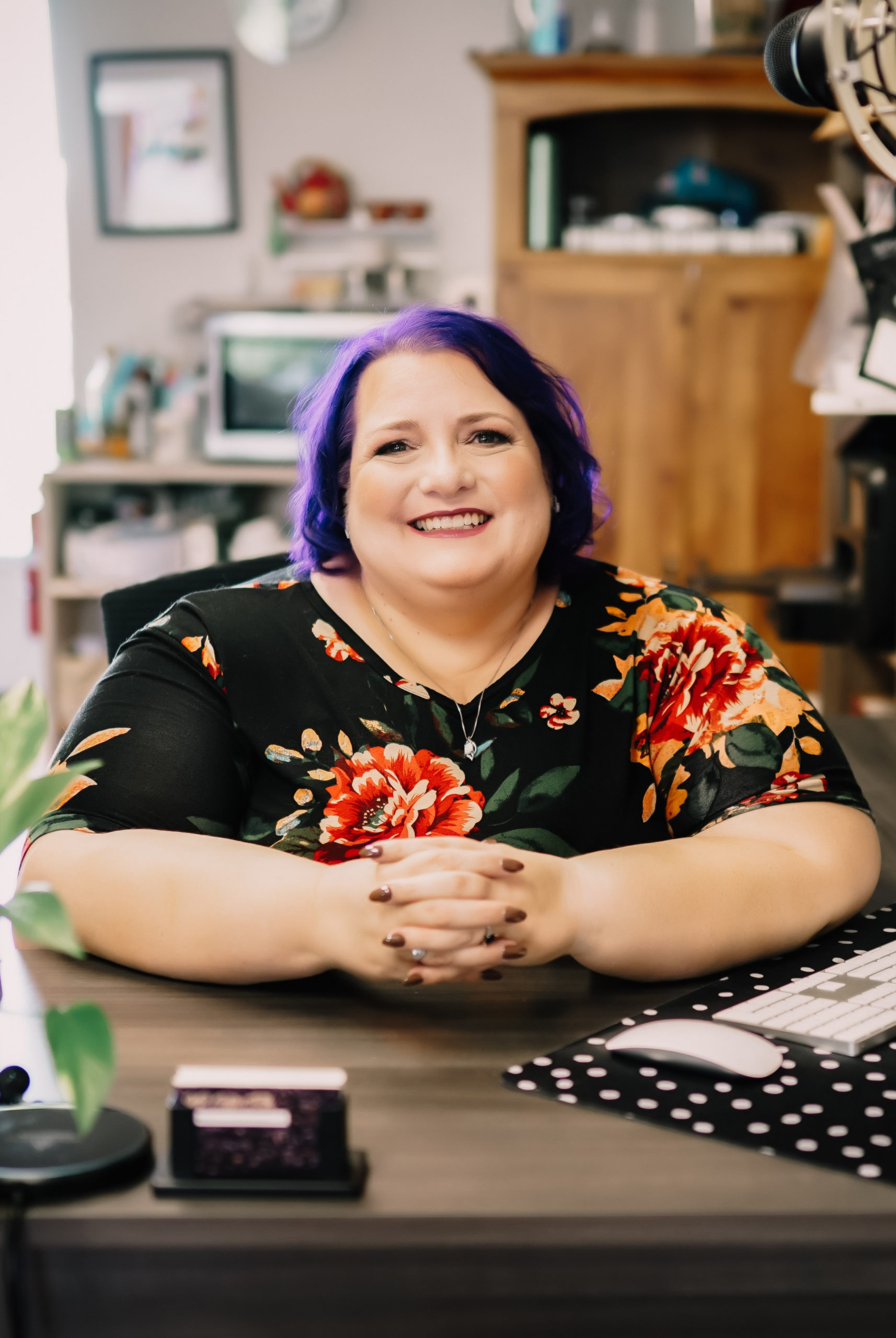
Michelle Frechette
Panelist and sponsorship organizer, moderator, and producer
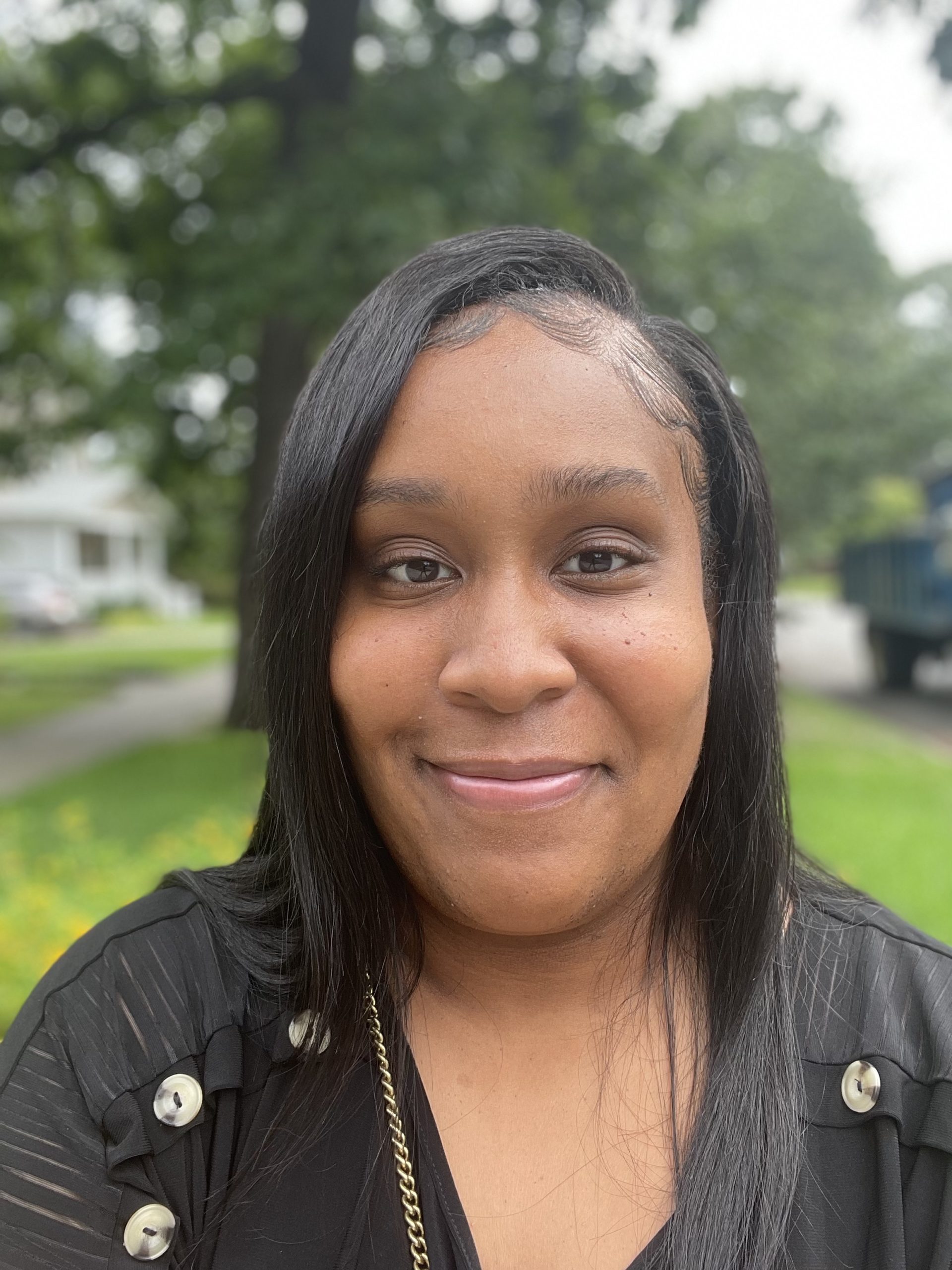
Nyasha Green
Moderator and social media manager.
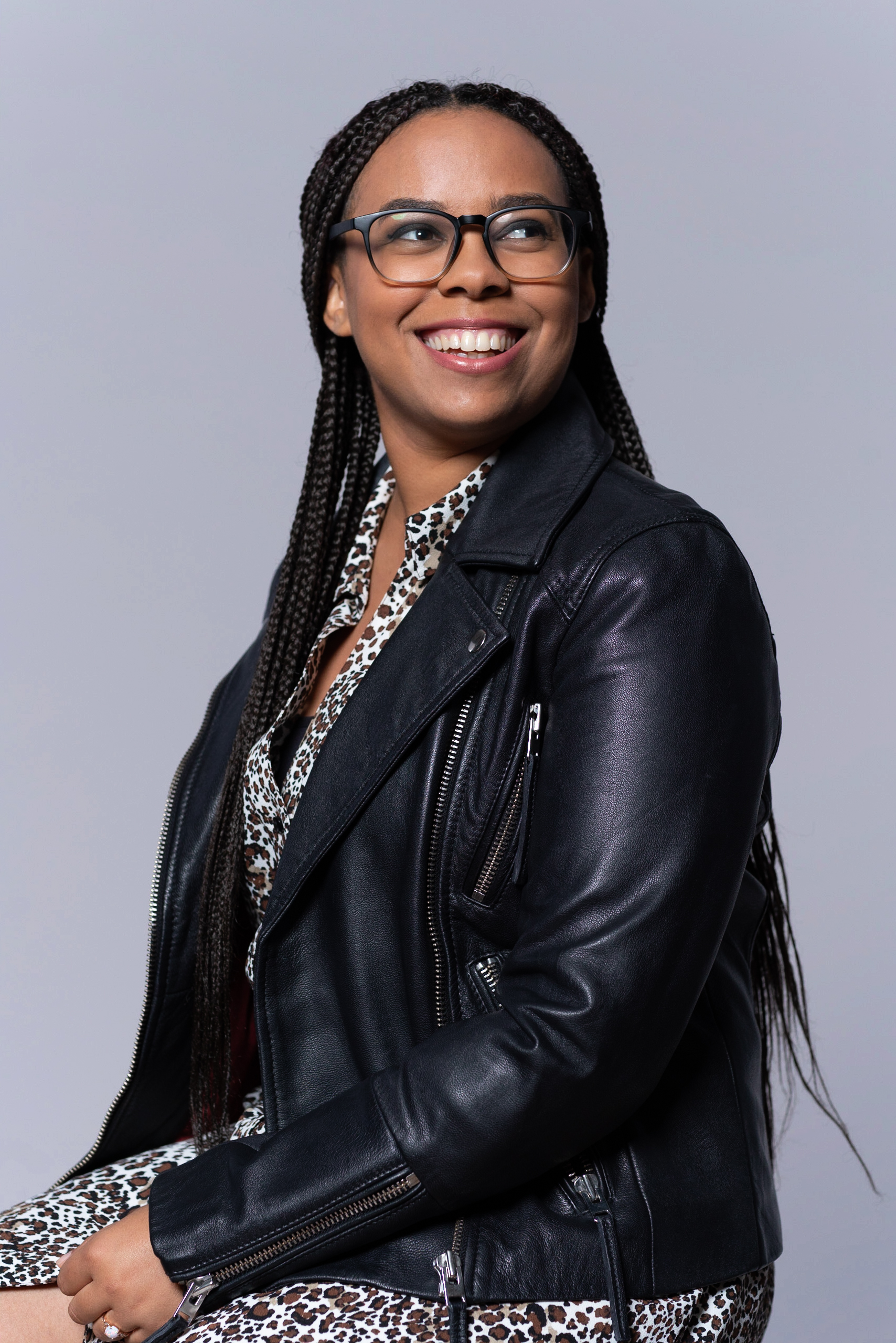
Allie Nimmons
Moderator, designer, editor and producer
Learn More About Underrepresented in Tech
Database
Use our database to connect with underrepresented folks to work with, or add yourself to find work and opportunities.
Podcast
Our weekly podcast discusses topics relating to underreprented people working in tech, as well as tips and advice for allies.
Newsletter
Our monthly newsletter contains news, updates, links, and more targeted toward the success of underrepresented people working in tech.
Our Services
Become a better ally. Pick our brains, or get help making your social media presence or your recruiting process more optimized for DEIB.

